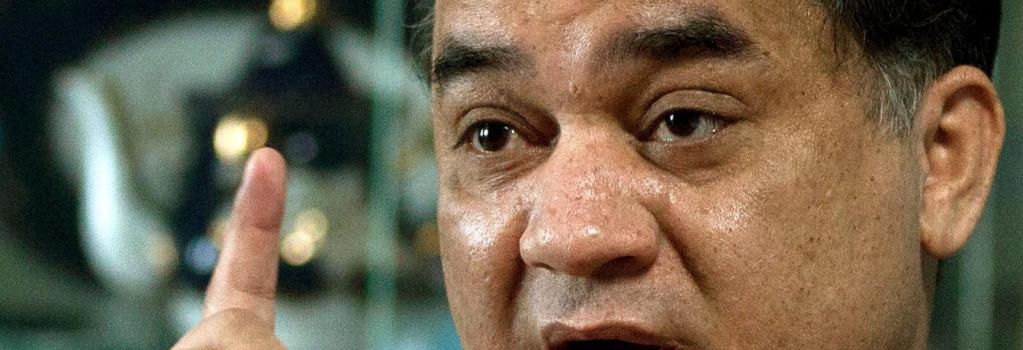Members of the US Congress are stepping up pressure on China over its treatment of its Muslim Uyghur population.
Lawmakers of the bipartisan Congressional-Executive Commission on China (CECC), led by senator Marco Rubio, said that they intend to nominate imprisoned Uyghur academic Ilham Tohti for the Nobel Peace Prize.
Ilham Tohti, once an economics professor in Beijing, worked over two decades to foster dialogue between Uyghurs and Han Chinese in his home region of Xinjiang. After deadly clashes broke out in 2009 between the two sides, he was repeatedly placed into detention and house arrest for publicizing cases of Uyghurs who were killed or went missing in the crackdown that followed. In 2014 he was detained again—for five months his family had no idea where he was—and then sentenced to life imprisonment on charges of separatism. His niece and students have also reportedly been imprisoned.
In 2016, Ilham Tohti was given the Martin Ennals Award by major human-rights groups.
Rubio and senator Christopher Smith, co-chairmen of the committee, also plan on Friday (Oct. 11) to introduce the Xinjiang Uyghur Human Rights Act of 2018 to Congress.
The CECC’s announcement came as the commission published its annual report on human rights in China, which this year focuses significantly on the situation in the far west border region amid growing evidence that China is incarcerating hundreds of thousands of Uyghurs there under the guise of rehabilitating them from religious extremism. China’s longstanding repression of the Uyghur community, who make up about Xinjiang’s 22 million people, has worsened significantly since 2009.
The report calls more broadly for the US to prioritize the promotion of human rights in its dealings with China, while noting that policymakers are already trying to “chart a new path forward” with China and “revisit the assumptions that previously informed U.S.-China relations.” The remarks echoed a blistering speech made by vice president Mike Pence last week that called for a rethink in America’s relations with China, and raised rights concerns, along with longstanding complaints about Beijing’s trade practices.
The CECC also called for the FBI to look into threats against Chinese, Uyghur, and Tibetan diaspora communities in the US, and Congress members are calling on the White House to consider applying (paywall) the Global Magnitsky Act—which allows the US to sanction individuals for violations of human rights—to China for its policies in Xinjiang.
Shortly before the lawmakers unveiled their report, China made clear there will be no let-up of its stance towards the Uyghurs, with the revision of a law that gives legal backing to the incarceration of Xinjiang Muslims in “psychological correction” camps.
China, which has stepped up its defense of its actions in Xinjiang in recent months in the international arena, is likely to respond with angry words against the CECC’s suggestions. Last year, members of Congress including Rubio nominated Hong Kong pro-democracy activists including Joshua Wong for the Nobel Peace Prize, with China’s foreign ministry in response accusing the US of interference and hurting US-China ties. And after the Nobel Committee awarded the late Chinese activist Liu Xiaobo the Peace Prize in 2010, Chinese-Norwegian relations took more than six years to normalize.

Leave a Reply